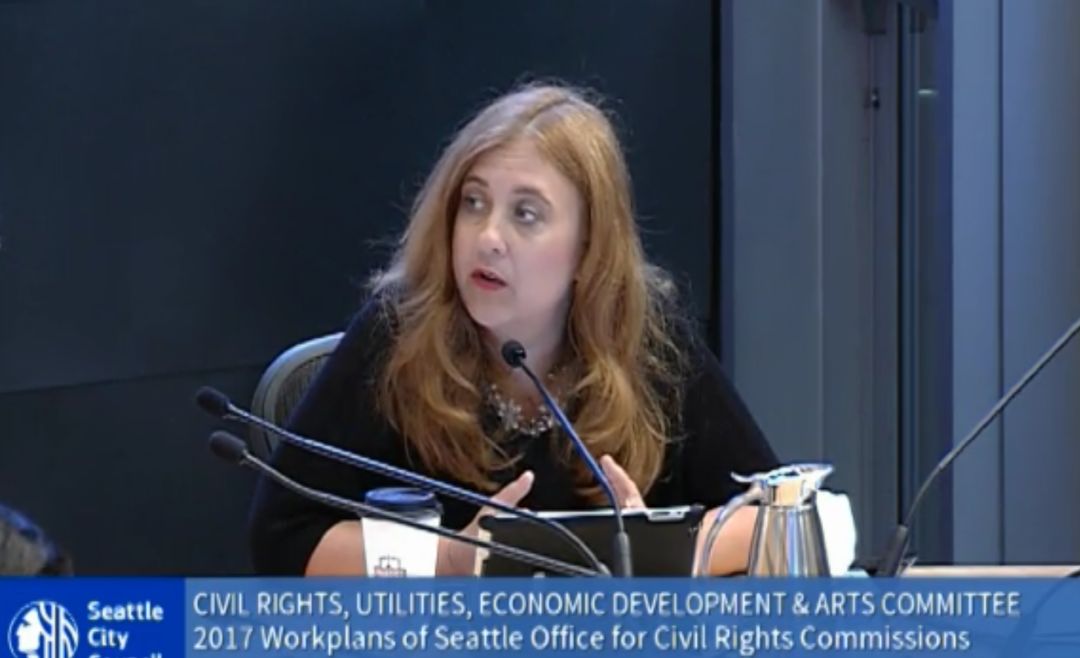Herbold Wants Closed-Captioning for Seattle Channel

Council member Lisa Herbold discussing accessibility and closed-captioning on the Seattle Channel at a committee meeting on May 23, 2017.
Image: Seattle Channel
Five years ago the Federal Communications Commission established requirements for all new video programming, including government programs, to offer closed-captioning and accommodate those who are deaf or hard-of-hearing.
But there are some exemptions to the rule—the Seattle Channel has one, and city council meetings don't offer closed-captioning. Council member Lisa Herbold is hoping to change that.
The FCC created an exemption that a program doesn't have to comply with the closed-captioning requirement if the compliance is an economic burden. A video programming provider has an exemption to the rule if the estimated money needed to offer closed-captioning exceeds 2 percent of gross revenues received from the channel the previous year.
According to cost estimates provided last week from the Seattle IT Department, the closed-captioning compliance would include a $400,000 one-time cost to caption archived videos and a $718,000 annual cost (750 hours of council and committee meetings, 75 press events, 100 long-format produced programs, and 185 shorter ones). Those estimations far exceed the 2 percent number of $67,000—the channel's budget this year is $3.3 million.
"Should Seattle Channel be directed to implement closed-captioning without additional budget support, cultural and community programming costs would be reduced by the commensurate amount required for the closed-captioning service," the IT report said.
"The closed-captioning is one that I'm going to be be taking on this year," Herbold said, hoping to expand the Seattle Channel's budget and calling it a "progressive and very necessary" next step to improve accessibility. Last year she secured funding for hearing loops in the boards and commissions room.
Cindi Laws, cochair of the Commission for People with disAbilities, on Tuesday had a myriad of accessibility concerns—from an inaccessible City Hall to people in wheelchairs past 4pm, to the length of time it typically takes to get an ASL interpreter if someone were to request one.
"You will note that on all of the public meeting notices it says, if you need special accommodation, please call. We don’t believe that people who need special accommodation should have to call," Laws said Tuesday. "We realize that that has a budget requirement so we’ll be working with the ADA compliance officers for the city to make sure we figure it out."




